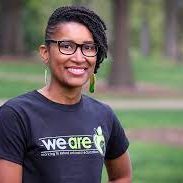Educating young learners with a social justice framework.
This project will create a play-based, anti-racism curriculum for preschoolers. The curriculum will utilize food justice themes, connecting food to culture, identity, and community for young learners. Because access to healthy foods is directly tied to race and identity, one of the goals of the curriculum is to help children develop healthy racial identities, where they have a healthy love for themselves and a healthy love for those from whom they are different. This work challenges the assumption that very young children are colorblind and too young to talk about race. Our team aims to provide tools that will help educators develop an anti-racism framework while teaching Farm to Early Care in Education principles. Two goals of this curriculum will be to foster an environment that supports children in developing healthy racial identities and to promote access to and education around healthy food both at home and at school. This curriculum would be relevant nationwide, and could be adapted to fit any local context.
This project will be implemented as a partnership between we are, EPIC, and the NC Farm to ECE Initiative.
we are
we are (working to extend anti-racist education) provides anti-racism training for children, families, and educators. They use a three-pronged approach to dismantle systemic racism in education and beyond by offering summer camps for children in rising 1st-5th grade, professional development for educators, and workshops for parents and families. As a team of current and former educators, we want to expand our efforts to early childhood education, where research shows biases begin in children. we are wants to support educators as they support early learners to develop healthy racial identities.
we are has partnered with the Farm to Early Care in Education work in NC and Empowered Parents in Community (EPIC), an organization that works directly with marginalized parents and communities. Together, all 3 organizations will use their skills and expertise to create systemic change in early childcare settings.
Together will create a play-based, anti-racism curriculum for preschoolers. The curriculum will utilize food justice themes, connecting food to culture, identity, and community for young learners. Because access to healthy foods is directly tied to race and identity, one of the goals of the curriculum is to help children develop healthy racial identities, where they have a healthy love for themselves and a healthy love for those from whom they are different. This work challenges the assumption that very young children are colorblind and too young to talk about race.
We will work with parents and educators to co-create the curriculum, train educators on how to use it, and then pilot the curriculum in at least 3 Durham preschools.
EPIC
Empowered Parents in Community is a non-profit in Durham, NC, whose mission is to dismantle systemic racial inequities through collective organizing and intentional engagement of historically marginalized parents and communities. They consult, train and facilitate meaningful conversation with those most closely impacted by inequity to build an empowered parent community. EPIC elevates the parent/guardian voice within a school to advocate for high quality educational opportunities and equitable distribution of resources. Parents' ability to have authentic inclusion of educating their children with trained professionals/educators allowing for connectivity between lessons given at school and reinforced at home. In this work, we center the voice of marginalized parents’ concerns and challenges, teach the historical components of the education system and inequities, empower parents to navigate the system and advocate for change in places of disparity.
NC Farm to ECE Initiative
A W.K. Kellogg funded initiative, NC Farm to ECE connects local farms with local childcare centers to empower the development of community-based, equitable food systems. To achieve this goal, CEFS and its partner organizations assist in developing food procurement systems by connecting resources and people across food systems and early childhood education, and by providing children with experiential ways to engage with food.
NC Farm to ECE seeks to create an equitable food system to ensure that children, regardless of geographic location, race, gender, and socio-economic status, are introduced to and have access to local and healthy food. In working alongside ECE programs across the state, the need for educator resources to work directly with children and families around food and developing healthy racial identities has become clear.
Farm to ECE and Food Justice Curriculum for Preschoolers
This project challenges the assumption that preschoolers are too young to talk about race. By three months old, babies show a preference for people who share a similar skin color (Dunham, Baron, & Banaji, 2008; Njoroge, Benton, Lewis, and Njoroge, 2009; Sangrigoli and De Schonen, 2004). By kindergarten, however, this preference for in-group association significantly decreases among Black and Brown children but not among White children (Katz & Kofkin, 1997). Ladson Billings and Sleeter found that using culturally relevant pedagogy (CRP) improves educational outcomes for students of color and helps all children develop healthy identities. As beliefs about one’s own racial identity and beliefs of others are shaping, educators and parents have a duty to help children develop healthy, anti-racist identities.
In partnership, we are and the NC Farm to ECE Initiative have trained hundreds of ECE professionals from across the state to understand how biases contribute to systemic harm, and to make connections between language and power.
These trainings have led educators to develop their own racial equity lens, though there is still a dearth of resources in helping them apply this new knowledge within their learning environment with their students. This project would seek to fill this gap in resources, so that educators have concrete materials that enable them to:
-
Articulate the importance of culturally responsive teaching in ECE environments;
-
Develop culturally responsive activities and lessons in a variety of subjects using multicultural books;
-
Find and select multicultural books appropriate for classroom and center education;
-
Extend these resources into the home through materials for family engagement; and
-
Build authentic relationships with the parents/guardians to view them as the experts of their child, offering reciprocal lessons to support the whole child.
Therefore, this project would develop tools for educators to guide children towards creating their own healthy, anti-racist identities through exploration of food and food justice. In addition, parents will be authentically engaged to support the lessons from school to home, and share with the educators the lessons from home to school.
These educational tools for our youngest learners, in helping them to develop a healthy racial identity and in understanding that they are future consumers and future eaters will have effects in the following areas: racial equity, child and adult health, socioeconomic benefits of investing in early childhood, social and emotional health. This project would develop strategies that would be available and helpful for all educators, potentially impacting children and families nationwide.
Proposed Budget
We anticipate that this project will take approximately $100,000 a year to implement. Funds will be used as follows: 70% personnel, 10% for consultancy/contracts with community partners, 10% workshop implementation with educators and families, 7% program evaluation, 3% supplies & materials.
At minimum, we’ll need three years to pilot the project, evaluate, and make revisions. Years four - ten will be spent scaling up the project to preschools beyond Durham and North Carolina.

Rhonda Taylor Bullock
Co-founder and Executive Director, we are

Jovonia Lewis
Executive Director, EPIC